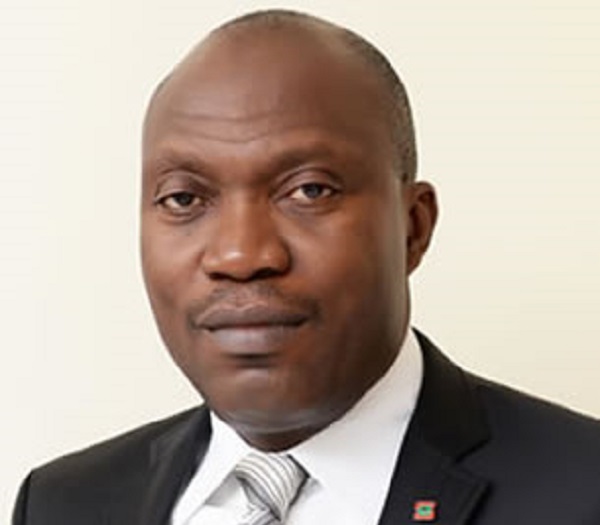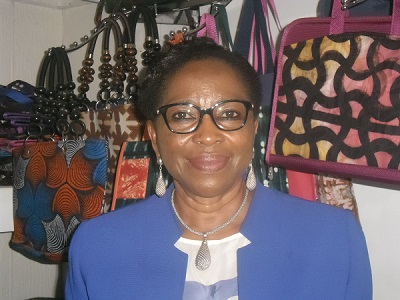Lekki Deep Seaport Will Make Nigerian Ports Competitive – Bello-Koko

There have been growing concerns and fear about the Lekki Deep Seaport which is expected to begin commercial operation soon. There is the fear of recreating the chaotic perennial Apapa traffic on Lekki corridor as much as there is the fear of the consequences of absence of hinterland connectivity and cost implication and the fate of the Lagos ports. Can it guarantee the expected competition amongst other ports in the West African Sub-region? The Managing Director of Nigerian Ports Authority(NPA),MOHAMMED BELLO-KOKO was able to provide answers to these streams of worries at the recent retreat and lecture organized by the League of Maritime Editors with the theme-LEKKI DEEP SEA-PORTS: Gains, Challenges and Potential Threats to Lagos Ports.
Bello-Koko was ably represented by the Assistant General Manager(AGM),Operations, NPA,Mr. Ayodele Durowaiye. Excerpts:
I would speak on the primary role of the Nigerian Ports Authority, the evolution of the port management system and its impacts. The reality and the need to develop our deep seaport,the key features of Lekki Deep Seaports,the gains of having a deep seaport, the possible challenges that will arise specifically as regards to Lekki deep seaport and how we can manage them and the conclude on the supposed threats that Lekki Deep Sea Port poses to existing ports .
The role of the Nigerian Ports Authority as a federal agency is to order the operations of the port, and the major ports controlled by the NPA include the Lagos ports complex, Tin Can Island port, Calabar port, Delta port, Rivers Port and Onne port. The Nigerian Ports Authority commenced operations in April 1955 following the implementation of the Ports Act of 1954 and also in line with the existing enabling Law, Ports Acts of 1999. The statutory duties of the Nigerian Ports Authority can be summarized as follows. They are to develop, own, operate ports and cargoes, provide safety and navigable channels, offer storage services, maintain safety and security and develop our port.
As an organization, our mission is to be the maritime logistics hub for sustainable port services in Africa with the mission to deliver efficient port services, secure customer-friendly environment. Our core value includes efficiency, customer satisfaction, innovation, collaboration, integrity, safety and security. In an effort to reposition the port to enhance, expand the frontiers of trade and the national economy, the federal government embarked on port reform between 2005 and 2006. That port reform added the injection of our private terminal operator’s initiative into port operation. Primarily, the business of everything is cargo handling which can be divided into two; service to ship and service to cargo. The service to ship involves all the activities geared to bring in the ship, from the ocean to the berth. It involves issues like barging, tonnage/towage and mooring services.
The service to cargo which NPA now outsource to private terminal operators,involves receiving of cargo from the sea as it comes to berths, storage of cargo and delivery of the cargo to the consignee. Everything that we do revolves around these two service areas, depending on which is needed.
The federal government provided reform through objective private initiative into the port operation and implemented the ‘Land Lord Model System’. Under the new terrain, there is a clear separation of functions and responsibilities between NPA and terminal private operators and the ministry of transportation which is responsible for policy
The transition of the Nigerian ports system from operating port system to landlord port management system has undoubtedly brought a positive impact to port operations . From experience, the port reforms have brought increased cargo influx into the country, as matter of fact, specially to ports in Lagos area. What we have now is that the terminal capacity of the port cargo handling has been exceeded and arising from the positive impact of the port reform . Today, if you aggregate the average number of the total tonnage in port, it is supposed to be handling 44 million tons to 50 million tons but we are doing over 75 million tons per annum now, in this post concession. These are the positive impacts though it also yielded some unintended negative impacts like the traffic gridlock that we face daily.
Port reform was supposed to come with infrastructure reform and agency reform but the case in some certain areas of the port reform has not been fully achieved. Vessel traffic has also improved from an average of 3,500 ships to more than 4,500. Turn around time of vessels has improved arising from the port reform and infrastructural development driven by the terminal operators based on the concession agreement. We have some better infrastructure facilities in some areas of the port, and this improved the average turnaround time of vessel from 8 days before the port reform to 4 to 7 days, post concession. Berth occupancy equally improved from 49 percent to 60 per cent, post concession.
Obviously, this is not where we wished to be as Nigerian ports is yet to be at the cutting edge of competition. We believe that to reposition Nigerian ports, we must necessarily address the challenges bedeviling the port system which include the followings: Weak port infrastructure, constraints of hinterland connectivity, constraints of yard and storage capacity in Lagos operation area, absence of synergy between port stakeholders owing to absence of port community system,security challenge in Eastern ports operational area over capacity utilization at Lagos ports.
It is interesting to note that while Nigeria controls over 60 percent of the West Africa Gross Domestic Product(GDP), it is a paradox that Nigerian ports only controls 25 percent of the cargo flow. The simple reason is the inherent weaknesses in our port system that allows shippers and liners to patronize neighbouring ports. In furtherance to this, the existing six ports are River Ports which limit the size of vessels that could call at our ports. The implication is that we cannot leverage on economies of scale thereby making freight cost per ton to be very high compared with neighbouring ports.
Essentially, sitting of the ports in city as Lagos is a challenge. It is a reality of our developmental growth. The Lagos ports are in a point where there are no longer elastic, cities have been built around them underscoring the need for us to begin elsewhere. Likewise absence of synergy between port stakeholders and port community system is a key issue as well as security challenges particularly to eastern ports operation.
Those of us who have been there can testify that the ports needs some in repair to support the infrastructure and security around the port.
It is against this backdrop and the need to mainstream Nigerian ports into global port system towards achieving competitiveness that propelled the shift towards the development of deep sea ports.
The Lekki Deep Seaport which is located at Lagos Free Trade Zone, Ibeju-Lekki has a total land area of about 90 hectares. It is the deepest port in West Africa with 16.5 meters depth, which is arguably the deepest in the West African Sub-region with the state-of-the-art most modern cargo handling equipment. The port construction is in two phases, phase 1 has 3 berths for container operations for dry port operations, while phase 2 will have 3 berths for liquid bulk. It would be hosting very large vessels-Panamax sometimes. The port is currently equipped with five modern ship-to-shore super-post Panamax cranes for vessels of 21 container wide.
It is worthy to note that the level of preparedness for Lekki Deep Seaport take- off and commencement of commercial operations in first quarter of 2023 would be a game-changer not only in Nigeria but in West African sub-region. The level of efficiency would be very high with the hosting of post-panamax vessel. Consequently, the cost per container box would be very low compared with the existing ports in Lagos thereby leveraging on economies of scales. These Liners would be encouraged to use Lekki port as they seek to minimize operational costs to maximize their profits.
The turnaround time in our Lagos ports is expected to be low. The masses would be encouraged to use Lekki to minimize operational cost; meaning that feeders would be going to Lekki to take what the bigger vessels have dropped both for Apapa ports and other facility around including neigbouring countries. Lekki Deep Seaport is positioned to function as a hub for containers for Apapa and Tin Can Island. The expected cargo throughput would be high, the Nigerian Ports Authority would be brought into the global port system. These are some of the competitive advantages it offers.
So we should know that at this point there are challenges therein. These are factored into two: The aspect of maritime space and hinterland connectivity for cargo evacuation. There seems to be this morbid fear by stakeholders that the Lekki Deep Seaport would lead to the death of Lagos port complex and Tin Can, perhaps they will become tourists’ ports. This is simply not true, the deep sea operates by principles of Hub and Spoke. Thus, it would function as a feeder port, like in other parts of the world. We want to allay the fear that Lagos ports would automatically die because of Lekki Deep Seaport. Lagos port would be functional and specialize in some areas like regional ports to serve destination cargo of their catchment area.
There is no doubt that operationalization of the Lekki Deep Seaport is a game-changer not only for Nigerian ports but for the national economy at large. It is important that necessary logistics infrastructure should be optimized to guarantee positive impact. It may be necessary for NPA to create requisite synergy with relevant bodies towards addressing observable operational constraints. It would be equally necessary to engage in advocacy to sensitize various stakeholders in their respective roles in actualizing the provision of this critical infrastructure.







